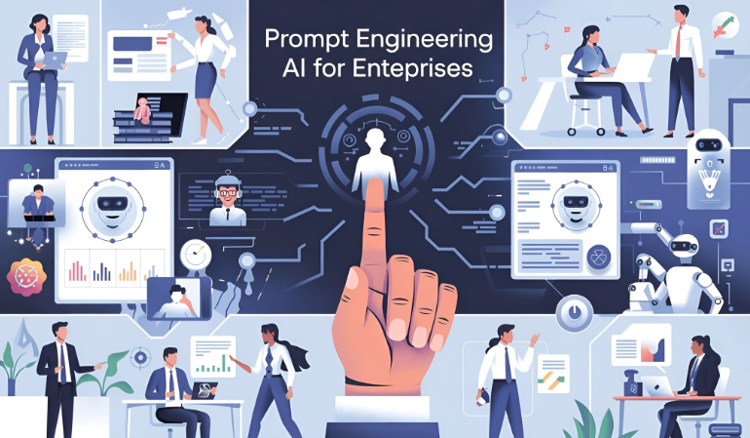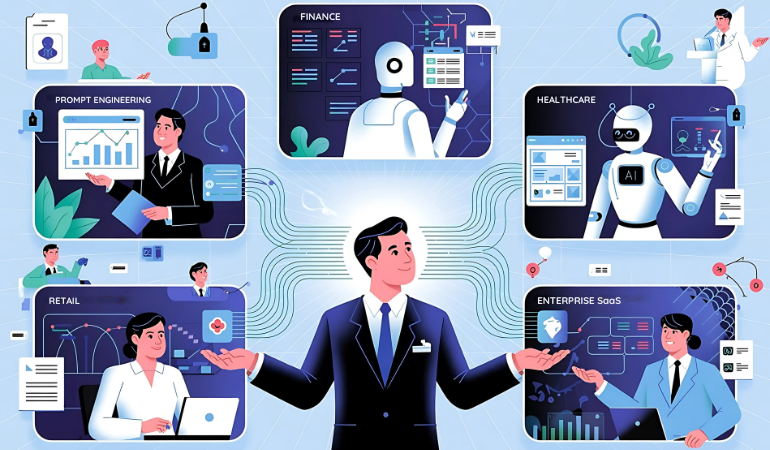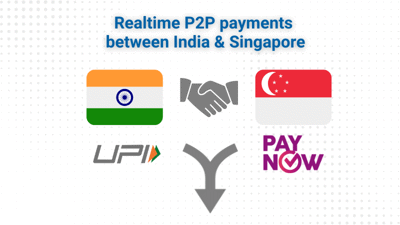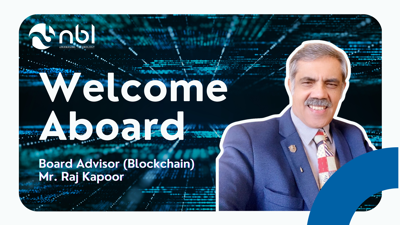Prompt Engineering: A Strategic Imperative for the AI-Driven Enterprise

The Rise of Prompt Engineering
As generative AI becomes increasingly mainstream, a new skill has emerged at the forefront of enterprise innovation prompt engineering. Simply put, it’s the art and science of writing effective instructions (prompts) that help large language models (LLMs) like ChatGPT, Gemini, and Claude deliver accurate, valuable responses.
But prompt engineering goes beyond just asking the right questions. It's about designing smart interactions that help AI align with real business goals whether it's improving operational efficiency, supporting compliance, or transforming customer service.
For modern businesses looking to stay competitive, prompt engineering is no longer optional. It’s becoming a core capability that enables teams to fully unlock the value of AI across departments.
A Quick Look at the Origins
The term “prompt engineering” started gaining attention around 2020, particularly with the release of OpenAI’s GPT-3. Early adopters noticed that the way they phrased their inputs could dramatically impact the quality of AI outputs. At first, it was all trial and error.
Fast forward to 2022 and beyond with tools like ChatGPT, Bard, and Claude becoming widely accessible the field matured into a more structured discipline. Teams began creating prompt libraries, using few-shot examples, and applying “chain-of-thought” techniques to get more accurate and context-aware results.
Today, prompt engineering is recognized as a foundational pillar in AI adoption, especially in enterprise environments where precision, context, and reliability matters the most.
How India Is Embracing Prompt Engineering
India is quickly emerging as a global hub for AI innovation, and prompt engineering is playing a growing role in that evolution. The adoption is steadily spreading across industries and sectors:
- IT and consulting firms are embedding prompt design into internal tools and client solutions streamlining everything from reporting to documentation.
- Startups in SaaS, Edtech, FinTech, and Healthtech are building AI-driven products that rely on smart prompting for chatbots, summarization, and personalized content.
- Government bodies and PSUs are exploring generative AI for citizen services, document workflows, and e-governance.
- Educational institutions are launching workshops and courses on LLMs and prompt writing, preparing students and professionals for the next wave of AI jobs.
While still in early to mid-adoption, the direction is clear: demand for AI developers, data scientists, and prompt engineers in India is on the rise especially for projects focused on enterprise automation, finance, and digital transformation.
What Makes Prompt Engineering So Valuable in Business?
Generative AI is powerful, but it’s not plug-and-play. The same model can behave very differently based on how you talk to it. That’s where prompt engineering makes the difference by shaping the interaction to suit business context.
With the right prompts, enterprises can:
- Automatically generate regulatory reports and compliance summaries.
- Extract meaningful insights from large volumes of financial data.
- Summarize meeting notes, research, or market trends in seconds.
- Draft internal documents, onboarding guides, or HR communications.
- Run scenario-based simulations to support better decision-making.
Think of prompt engineering as the translator between your domain knowledge and the AI engine making it more useful, more reliable, and more relevant.

Industry-Specific Use Cases: Real Impact, Real Results
Every industry has its own language, standards, and regulations. Prompt engineering allows generative AI to respect and reflect those nuances:
- Financial Services: From investor-ready pitch decks to automated risk analysis tailored prompts help streamline critical financial documentation.
- Retail & Customer Service: Chatbots become more intelligent and brand-aligned with prompts that reflect tone, policy, and product knowledge.
- Healthcare & Pharma: Prompts can guide AI to summarize complex clinical data or assist with compliant report writing for trials and audits.
The result? Faster turnaround, fewer errors, and more time for your team to focus on strategic initiatives.
Why Expert Support Matters
Prompt engineering may look easy on the surface, but delivering consistent, high-quality results at scale requires expertise. Businesses must understand:
- How different LLMs interpret instructions.
- The impact of wording, structure, and context.
- Data privacy and compliance considerations.
- Continuous refinement based on feedback and model updates.
Shaping the Future with Prompt Engineering
As generative AI becomes a foundational part of enterprise operations from financial automation and customer service to compliance management, prompt engineering is rapidly emerging as a must-have skill across industries.
But it’s not just about using AI tools, it’s about understanding how to communicate with them effectively to get precise, context-aware, and business-aligned outcomes.
At its core, prompt engineering is the art and science of guiding AI, giving it the right inputs to produce the right outputs. This is especially critical in regulated sectors like fintech, governance, and enterprise SaaS, where clarity, accuracy, and auditability matter.
The Road Ahead
Organizations that build prompt engineering into their workflows today will gain:
- Faster decision-making, powered by AI insights.
- Higher productivity, with reduced manual effort.
- Improved compliance, via automated, auditable AI output.
- Greater innovation, by rapidly prototyping and deploying AI-powered tools.
In the coming years, prompt literacy will be as important as digital literacy. Those who understand how to converse with AI clearly, strategically, and creatively will lead the transformation.


























